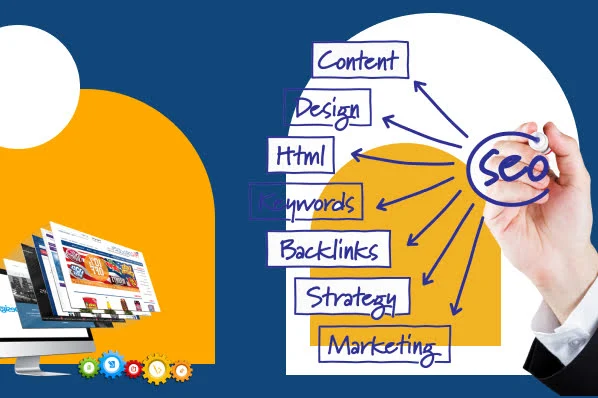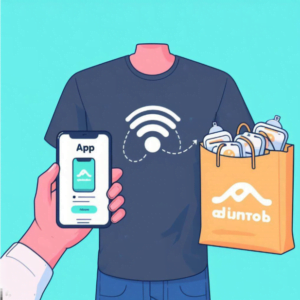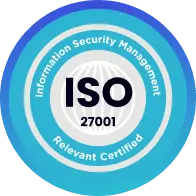Mobile app marketing encompasses various strategies aimed at driving app downloads, engaging mobile users, and retaining existing app users. In this article, we will guide you through the different stages of app development and provide tips on how to effectively market your app. These tips can be implemented sequentially throughout the following four stages: app development, 1-2 months before app launch, app launch week, and post-launch activities.

Here are 25 tried-and-true mobile app marketing tips from Digital Authority that have proven to be successful for our clients, and that you should consider implementing too.
- Preparing for Mobile App Marketing during the Development Phase
During the app development phase, focus primarily on building the app. However, there are certain features you can add to your app that will help market it once it is launched. These features are applicable to all industries and types of apps.
Make it easy for users to share and refer your app to friends: Incorporate referral programs into your app development process to incentives users to invite others to use the app. Embed this functionality natively in your app and integrate it with messaging and social platforms like WhatsApp, Facebook Messenger, and Gchat.
- Implement mobile app analytics to measure user behavior: Integrate with standard analytics software development kits like Google Analytics, AppsFlyer, or Mixpanel. Having an analytics framework in place will allow you to personalize the user experience, understand customer attitudes, and make improvements to your app.
- Enable push notifications: Take advantage of push notifications to engage with users after the app is launched.
Push notifications have higher open rates compared to emails, making them an effective communication tool. Register with the operating system’s push notification service (iOS or Android) and add the SDK to your app for seamless communication.

- Provide an app feedback mechanism: Incorporate a feedback option within your app to encourage users to provide feedback. Make it easily accessible and convenient for users to pitch ideas or report issues. This feedback will help you improve your app and create a better user experience.
- Deploy a full-page pop-up to announce app updates: Create an in-app pop-up that prompts users to update the app when a new version is released. This ensures that all users have the latest version and are engaged with the app. Customize the pop-up to introduce new features and address user feedback.
- Encourage customer ratings through in-app pop-ups: Use built-in pop-ups to encourage active users to rate your app. Higher ratings improve your app’s visibility and increase its ranking in app stores, leading to more downloads and organic marketing.
1-2 Months Before Launching the App
This is a crucial time for app development companies and entrepreneurs, as final tweaks are being made to the software and marketing efforts are being ramped up to generate early downloads.
- Create a branding style guide: Develop a brand style guide that represents your app’s message consistently across all platforms. This guide should encompass your brand story and logo, ensuring consistency in communication and visual elements.
- Build a website and landing page for your app: Create a dedicated website and landing page that explains the value and benefits of your app. This will increase visibility, boost SEO, and help in collecting emails to build excitement before the app launch.
- Create a demo video: Leverage visual content and create a short demo video showcasing how to use the app and its benefits. This video can be shared on your landing page, in the app, and on your App Store page to attract users and build interest.
- Write a compelling press release: Craft a well-written press release to attract journalists and secure coverage for your app. Include an attention-grabbing headline, a press contact, a summary of key points, valuable information, a quote, a closing statement, and a boilerplate of your brand. Target journalists who specialize in your industry to maximize exposure.
- Compile a list of journalists in your niche for media outreach.
When creating your media list, it is essential to understand the target audience and the media they consume. This will determine whether your story is better suited for trade publications or blogs, depending on whether it is business-based or consumer-based. To be effective, personalize your pitch to show journalists that you understand their work and what they are looking for. Take note of any connections you have with them and save this information for future email marketing campaigns.
- Create a list of social media influencers and bloggers in your niche.
Influencers differ from journalists as they have a strong following due to their expertise and engagement in a specific area. They are active on social media platforms and regularly post content. Build relationships with influencers by engaging with their posts and sharing their content.
- Establish and maintain active social media profiles.
Create social media profiles for your app, and begin posting regularly at least one month prior to launch. Invite friends, family, and colleagues to like and follow your page. Aim to have a minimum of 500 followers and 20-30 posts before the app is live to give the impression of an established presence.
- Implement a comprehensive SEO strategy to increase app visibility.
Start working on your SEO strategy 1-2 months before the app launch. Research keywords related to your app and optimize your website to rank higher in search engine results pages. Create original content to share on your website and social media channels, which can act as linkable assets for further boosting your SEO efforts.
2 Weeks before Launch:
- Engage with journalists and influencers.
Reach out to journalists and influencers on social media and through email communication. Like, comment, and share their posts to demonstrate your active involvement in their communities. Send regular emails to your list of influencers and journalists who have agreed to support your app, ensuring they are ready to promote it on launch day.
- Optimize your app store listing.
Create a concise and compelling app description that includes keywords relevant to your app’s category. Use clear screenshots with catchy captions to attract users’ attention and encourage downloads.
- Participate in online and offline communities.
Become an active member in relevant online communities by answering questions on platforms like Quora and Reddit. Share informative presentations on platforms like Slideshare to engage with your target audience. Additionally, consider organizing or participating in events where you can talk about your app and connect with potential users.
- Distribute promotional swag with your app’s logo and tagline.
Prior to launch, create promotional products such as mugs, hats, or high-quality t-shirts featuring your app’s logo and tagline. Distribute these items to your team, friends, and contacts to generate brand awareness and encourage downloads.

After App Launch:
- Host a launch party to generate buzz for your app.
Invite friends, family, associates, journalists, and influencers to attend a launch party. Provide free food and drinks to entice attendees, and encourage them to download and promote your app.
- Run app-install ad campaigns to boost organic growth.
Invest in paid promotions on platforms like Facebook, Twitter, and Adwords to increase app installs. A high number of installs can enhance your visibility in app stores, potentially leading to more downloads.
- Create business cards with QR codes and distribute them to strangers.
Generate interest in your app by distributing business cards with QR codes in public places like subway stations. This allows people to easily access your app without the need for further follow-ups.
- Update all touch points to promote your app.
Include links to your app store listing in your email signature, change your business voicemail message to encourage callers to download the app, and update your social media profiles with creative imagery showcasing your app.
- Submit your app to app reviewer sites.
Submit your app to app reviewer sites to gain exposure and potentially be featured on popular websites. Reach out to platforms like ProductHunt to list your app and ask for upvotes to attract more downloads.
- Apply for app awards to increase credibility.
Apply for app design and feature awards to showcase your app’s quality and differentiate it from competitors. Consider awards such as Apply Awards, Best App Ever Awards, or The Webby Awards.
- Continuously monitor app analytics and gather user feedback.
Regularly analyze app analytics and listen to user feedback to identify areas for improvement. Actively implementing changes based on user input demonstrates that you value customer satisfaction and enhances loyalty.
Have any questions? Follow us to learn more!
In conclusion, these 25 tips provide a comprehensive guide to effectively marketing your mobile app in a crowded and competitive market. From development to post-launch, these strategies help you stand out and attract downloads.
Author
-

Kieran Scott is a Senior Marketing Manager on the blog team with a wealth of experience writing about your favorite social media platforms, sales trends, and how you can keep your customers happy. He’s the sole manager of Breaking the Blueprint, a DI&B blog series dedicated to addressing the unique challenges and opportunities of underrepresented entrepreneurs, growing its traffic by more than 50% in just one year. When he’s away from his keyboard, you’ll probably find him trying new recipes and leaving his heart out on the soccer field. At the same time. He’s based in Brooklyn, NY.
View all posts







